Chile sees Covid surge despite vaccination success
- Published
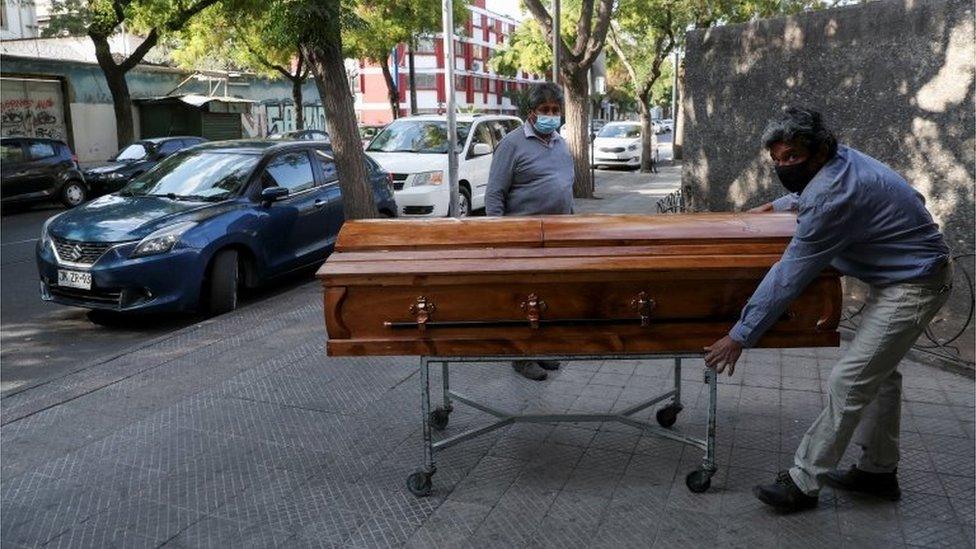
Chile has seen cases of coronavirus surge in March and April
Chile's Health Minister Enrique Paris has been striking a gloomy note at his daily Covid news conferences in recent days.
The number of daily cases reached a new record high on 9 April, going over 9,000 for the first time since the pandemic began and considerably higher than the previous peak of just under 7,000 cases in mid-June.
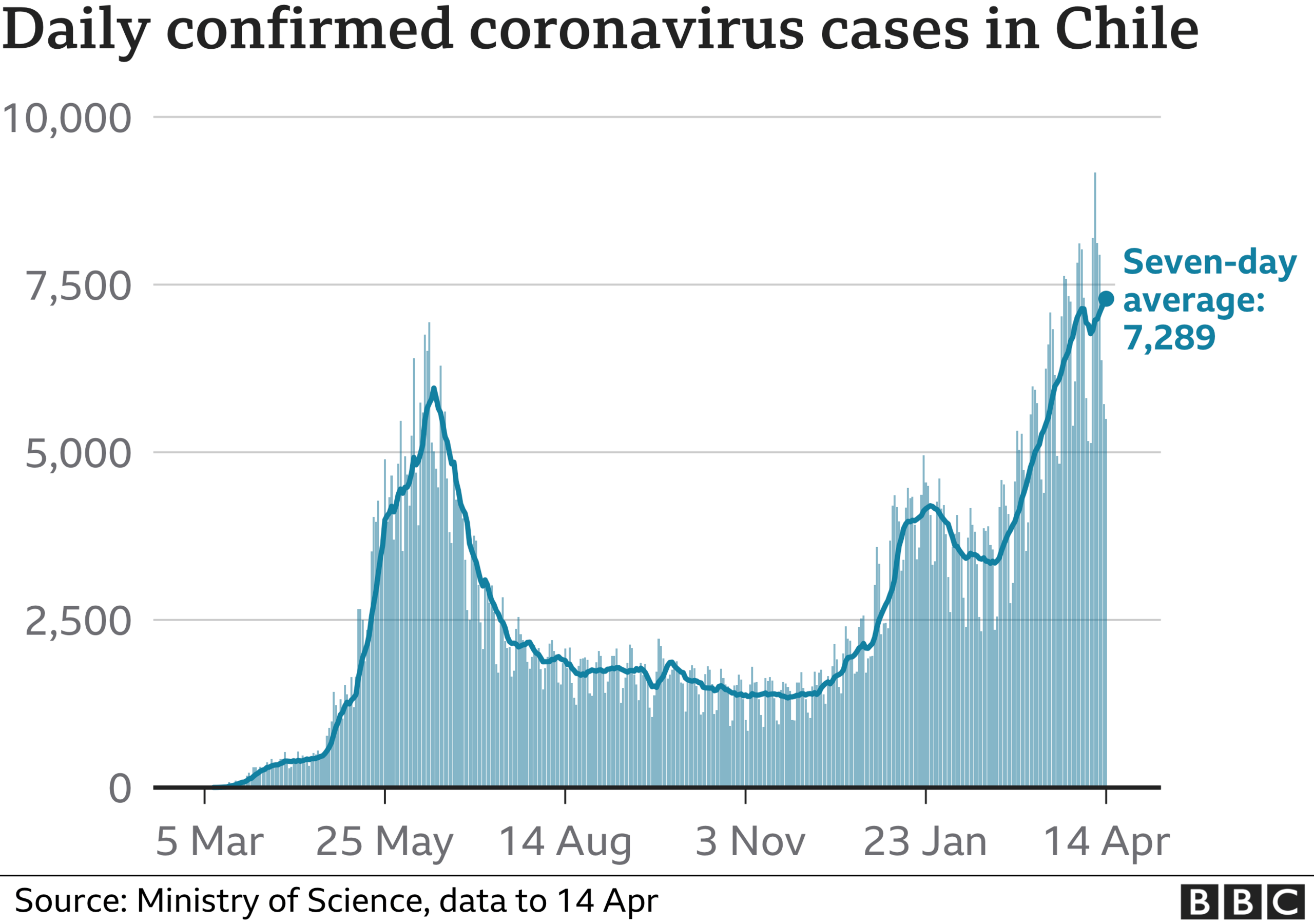
"It's worrying," he said last Friday. "We're going through a critical moment of the pandemic… I urge you to take care of yourselves, of your loved ones, of your families."
Intensive care units are again overwhelmed, the country has for a second time closed its borders to everyone who is not a resident and most of its 18 million inhabitants are back in lockdown.
"It feels like we're going backwards," says Santiago resident Sofía Pinto. "We need to download special permits online to be allowed out just twice a week for essential things like food shopping or doctor's visits."
The frustration and confusion many Chileans are feeling over the renewed lockdown is due partly to the fact that just two months ago, President Sebastián Piñera was boasting about Chile having one of the fastest vaccination rollouts in the world.
What went wrong?
Critics have accused the Piñera government of getting caught up in triumphalism over the vaccine rollout and of having loosened coronavirus restrictions too fast.
Like governments across the world, ministers here faced difficult choices.
Chile's borders had been closed - bar for a few exceptions - from March to November 2020. But after a strict lockdown had driven the rolling seven-day average down to 1,300 cases in November, the decision was taken to reopen them, including to international tourists.
Chileans were also given special holiday permits to travel more freely around the country during the southern hemisphere summer holidays after some experts argued it was important for people's mental health.
Restaurants, shops, and holiday resorts were opened up to kickstart the faltering economy.
Fast, but not in time for the holidays
And while the vaccination rollout has indeed been fast, it only started in late December, with front-line health care workers, those over 90, and teachers first in line.
So the vast majority of Chileans would not yet have been vaccinated by the time they met up with relatives and friends for their summer holidays in January and February.
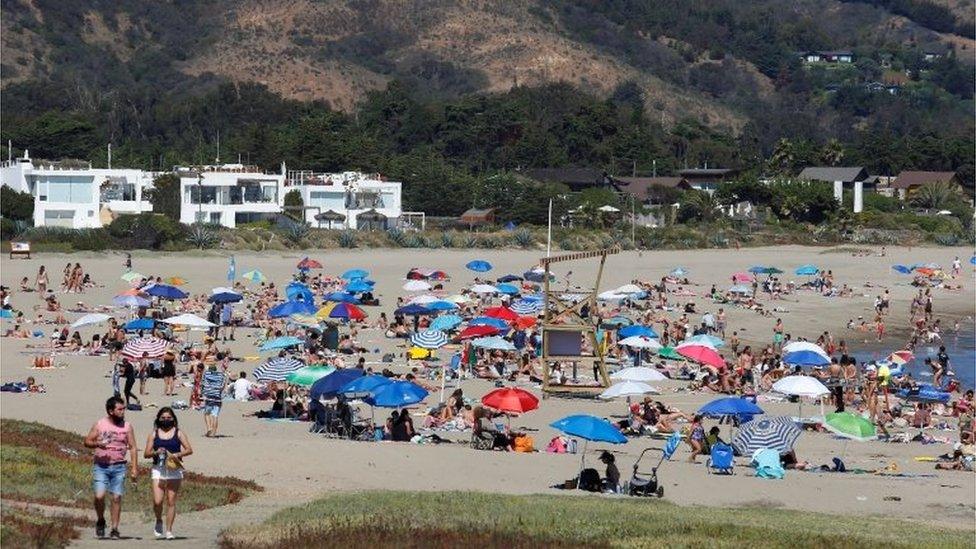
Chile's main holiday season is in January and February
Add to that the spread of new, more easily transmittable variants of the virus such as the P.1 variant, which is thought to have emerged in Brazil's Amazonas state in November.
Dr Susan Bueno, a professor of immunology from the Pontifical Catholic University, says the recent surge is "a multi-factor issue", but that she thinks the new variants are having a "huge impact".
She says the message about how to prevent contagion, such as wearing masks and washing your hands, was also somewhat neglected during the summer months in Chile. That, she explains, "is probably one of the causes of the outbreaks we are seeing now".
CoronaVac confusion
There is also confusion about how the vaccine that the vast majority in the country has received works, Prof Bueno adds. More than 93% of the doses administered in Chile so far have been CoronaVac, produced by the Beijing-based biopharmaceutical company Sinovac.
Data on the efficacy of the CoronaVac vaccine is varied. Brazilian trials suggested an efficacy rate of around 50.4% but results from late-stage trials in Indonesia and Turkey suggested a much higher rate - between 65% and 83%.
A study published by the University of Chile last week, external (in Spanish) looked at the level of protection the vaccine offered after the first and the second doses.
It suggested CoronaVac was 56.5% effective in protecting people against infection two weeks after they had received their second dose, but the figure was only 3% in the timespan between the first and second doses.
This may give a key clue as to why cases may still be on the rise in Chile, where more than 7.6 million people have received the first jab, but the number of those who have had both the first and second doses is much lower.
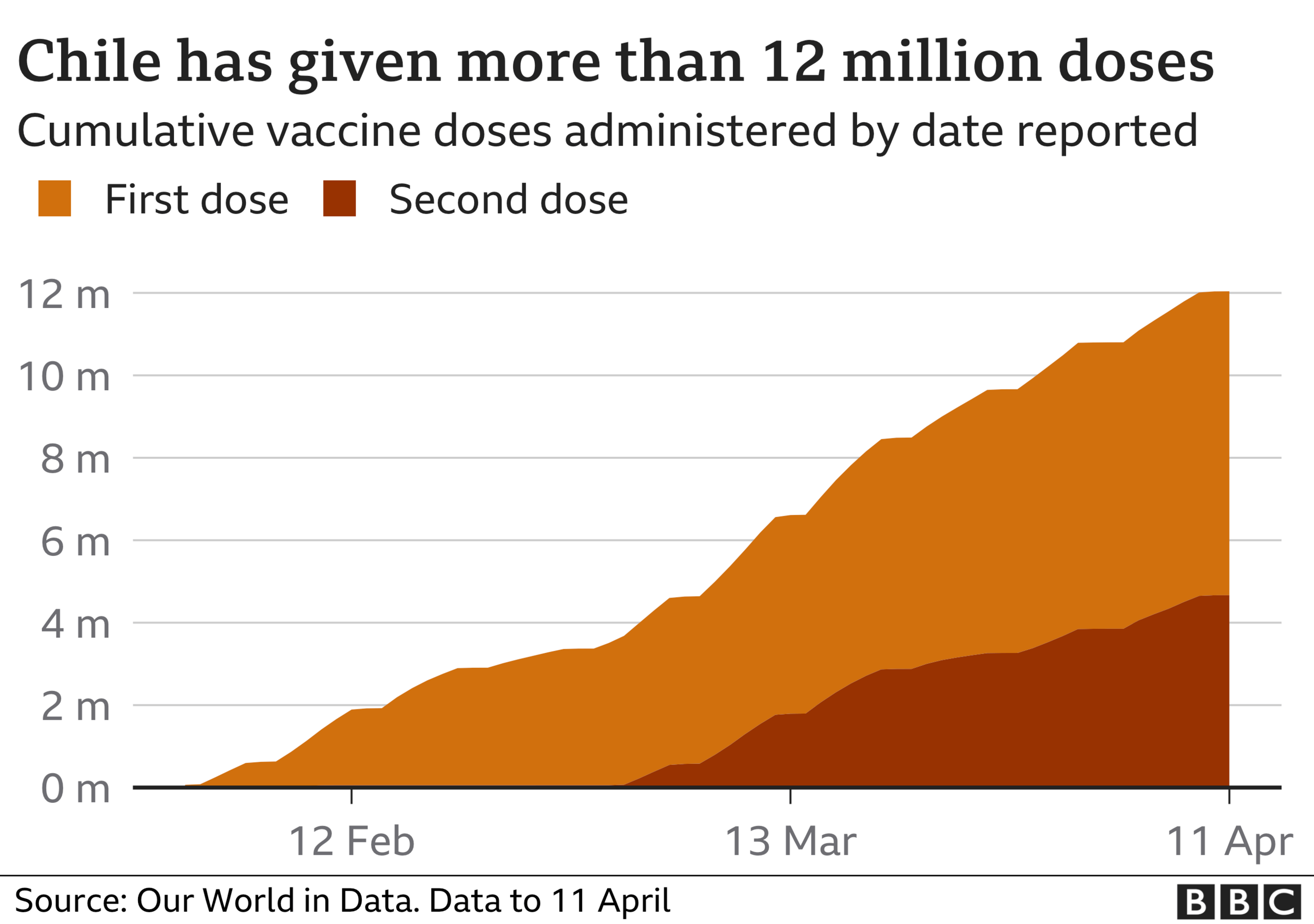
At a news conference presenting the findings, University of Chile's rector, Ennio Vivaldi, went as far as saying that the first dose of CoronaVac on its own did not have "any relevant effect".
Second dose is key
Prof Bueno, who is the scientific director of the clinical trial for CoronaVac vaccines in Chile, says complying with the full vaccination schedule is therefore paramount. "Just one dose doesn't give you the whole preventive response," she explains.
It is a message that María González thinks the government has not done enough to get across. The Santiago resident has just received her first jab at a vaccination centre.
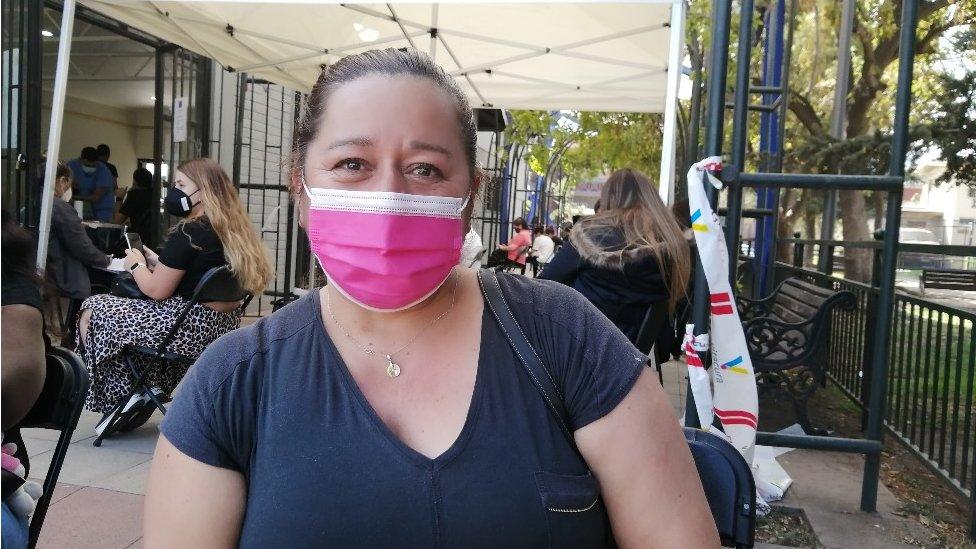
María González says the government should have told people not to let their guard down after their first jab
"Two jabs are needed before the vaccine works properly," she says as she waits outside the clinic to make sure she does not have an allergic reaction. "And even then, we still need to be careful, follow social distancing and other safety measures."
Some Chileans are worried about the efficacy of the CoronaVac.
Gonzalo Sir is one of them. He has come to one of the few vaccination centres in the capital that offers the Pfizer vaccine.

Gonzalo Sir says he wanted to get the Pfizer vaccine rather than the more widely available CoronaVac
"I want that one [the Pfizer vaccine] because I hear it is more effective and I need it because I travel for my work and Pfizer is more widely recognised," he says.
But Prof Bueno, who analyses scientific data from trials with the CoronaVac, is adamant that the data shows that it works.
She says in the trial that showed an efficacy rate of around 50% many of those who got infected only had very mild symptoms or were asymptomatic. She stresses that the important thing is that no-one in the trial needed to go into intensive care.
She insists CoronaVac prevents deaths and severe illness and is also proving effective against the Brazilian variant.
In response to the spike in cases, the government has not only ordered a strict lockdown but is also providing the latest information about its vaccination campaign on a website, external inspired by the Johns Hopkins University Coronavirus Resource Center.
And as the counter on the website ticks upwards as a growing number of Chileans get vaccinated, the message about the importance of getting vaccinated also seems to be filtering through.
"It's vital that we get the vaccine and I don't care which one I get," says Verónica Perez, who recently got the CoronaVac. "All of them help save lives."
You may also be interested in
Looking after the babies and children in Brazil's Covid ICU